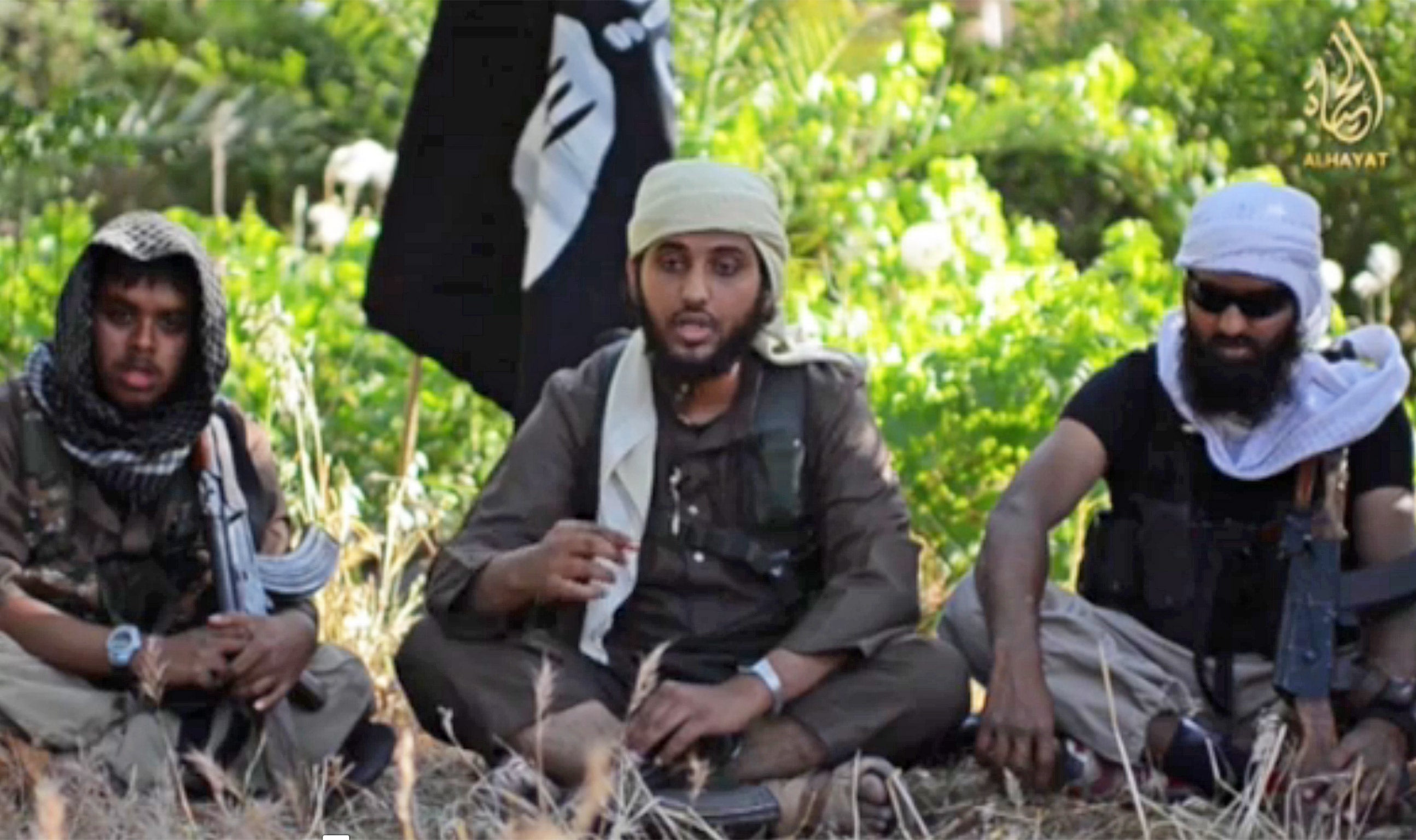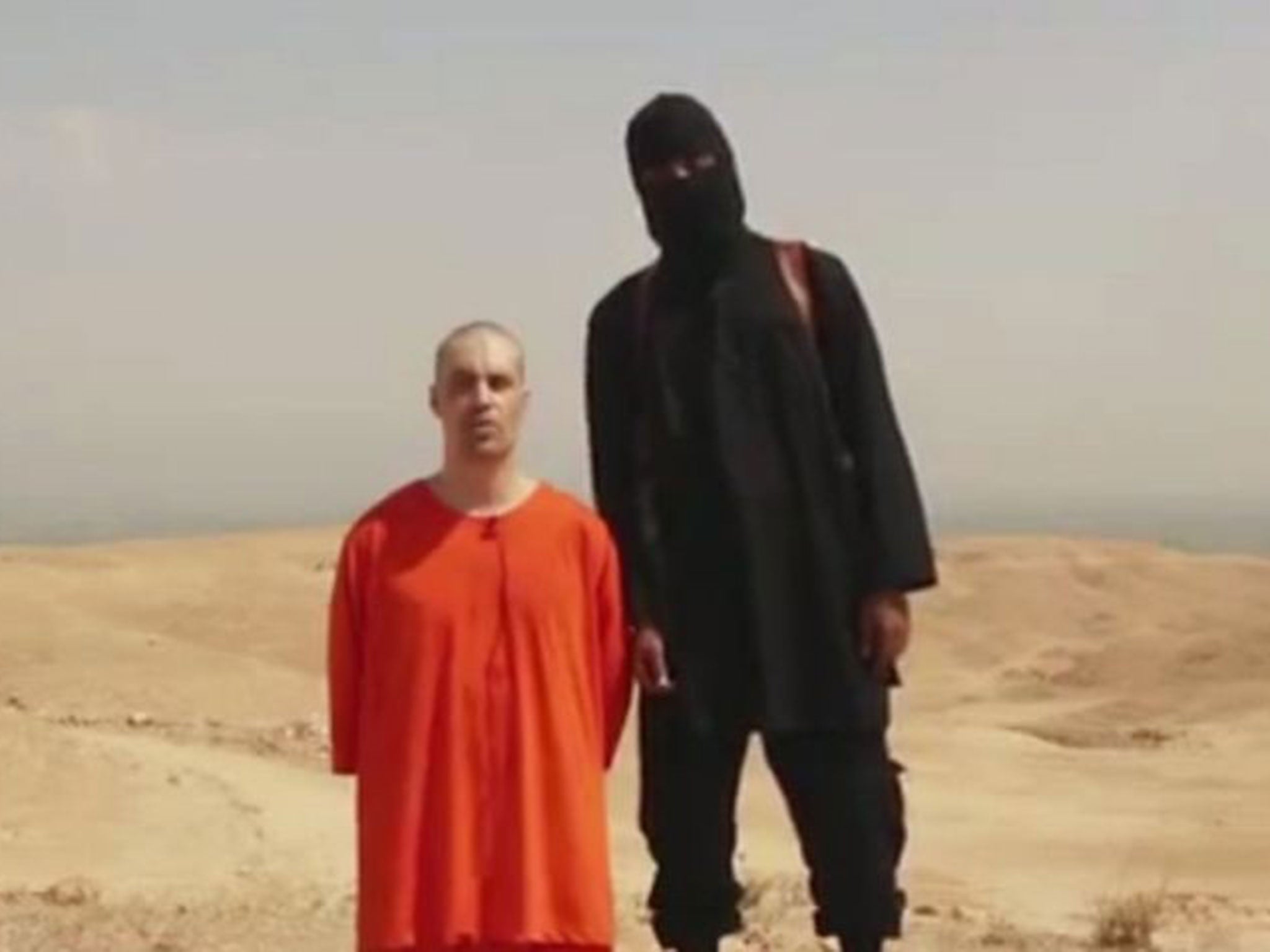James Foley beheading: 'Increase Government spying powers to stop British terrorists', says Liberal Democrat peer
Young British men (pictured above) are among Isis' ranks in Iraq and Syria

Your support helps us to tell the story
From reproductive rights to climate change to Big Tech, The Independent is on the ground when the story is developing. Whether it's investigating the financials of Elon Musk's pro-Trump PAC or producing our latest documentary, 'The A Word', which shines a light on the American women fighting for reproductive rights, we know how important it is to parse out the facts from the messaging.
At such a critical moment in US history, we need reporters on the ground. Your donation allows us to keep sending journalists to speak to both sides of the story.
The Independent is trusted by Americans across the entire political spectrum. And unlike many other quality news outlets, we choose not to lock Americans out of our reporting and analysis with paywalls. We believe quality journalism should be available to everyone, paid for by those who can afford it.
Your support makes all the difference.Fears of growing Islamic extremism in the UK following the brutal beheading of James Foley, reportedly by a British captor, are prompting calls for increased Government surveillance.
Tony Blair’s controversial “control orders” that kept terrorism suspects in their homes without access to phones or the internet were scrapped by the Coalition in favour of more limited terrorism prevention and investigation measures (Tpims) but a Liberal Democrat peer is calling for them to be reinstated.
Nick Clegg also blocked the controversial Communications Data Bill, known as the “snoopers’ charter” that would have made internet providers and phone operators store users’ personal data.
Lord Carlile urged the Government to review its surveillance policies and increase efforts to stop young people being radicalised amid claims a “significant number” of British citizens are fighting with the Islamic State (Isis) in Syria.
The peer was formerly the Government's independent reviewer of terrorism legislation and worked in the decade following the 9/11 terrorism attacks, when the Labour administration passed several controversial laws.

He said: “I do think the Government could make a legislative response to the current problem by reintroducing control orders, or beefed-up Tpims, as they are called, to ensure that people who are identified by solid intelligence as presenting this kind of risk can be placed under controls which can prevent them activating their ideas.
"I think that we can demonstrate that, certainly in the last six or seven years of control orders, they were very effective, including a provision that allowed certain people - if a judge agreed, a very senior judge - to be relocated.
“Of course, there are no Tpims at all at the moment. The Tpims that were created ran out and the Government decided to have no more, for reasons which I have never understood.”
Authorities are working to identify Mr Foley’s killer, who is apparently British and has been identified as “John” by former prisoners.

He is one of hundreds of Britons believed to have travelled to Syria to fight with Islamist groups, including Isis and there are fears that they could continue their jihad if allowed to return to the UK.
The Prime Minister has insisted the authorities are working hard to track those who have come into contact with Isis but Lord Carlile said more needed to be done.
Backing the revival of the Communications Data Bill, he said it would not have meant intercepting phone calls but using the “bare data” routinely stored by companies.
A former Middle East minister, Alistair Burt, also called for the reinstatement of control orders.
“If the authorities believe someone to be dangerous, what sort of monitoring is possible of that individual?” he told the Guardian.
“That raises the issue of control orders coming back on to the agenda again. It is time to revisit control orders. These were cancelled when we came into office. But circumstances have changed.”
Tory MP Julian Lewis, a member of the Intelligence and Security Committee, told the newspaper: “We were not neutral in this country between Nazi doctrine and democracy or between Communist doctrine and democracy.
"We should not be neutral between Islamist totalitarianism and democracy."
The jihadist in footage of the execution of Mr Foley is believed to be the ringleader of a trio of UK-born extremists responsible for guarding Western hostages and nicknamed after members of the Beatles, with the two others dubbed Paul and Ringo.
One of the extremists glorying in the American journalist’s murder online was Khadijah Dare, a London woman who converted to Islam as a teenager and has since moved to Syria to marry a jihadist fighter.
Writing on Twitter, she said she wanted to be the first British woman to execute a Western captive in Syria.
Earlier this year, she urged fellow British Muslims to join her, writing: “All da people back in Dar ul kufr [land of disbelievers] what are you waiting for ... hurry up and join da caravan to where the laws of Allah is implemented.”
Additional reporting by PA
Join our commenting forum
Join thought-provoking conversations, follow other Independent readers and see their replies
Comments